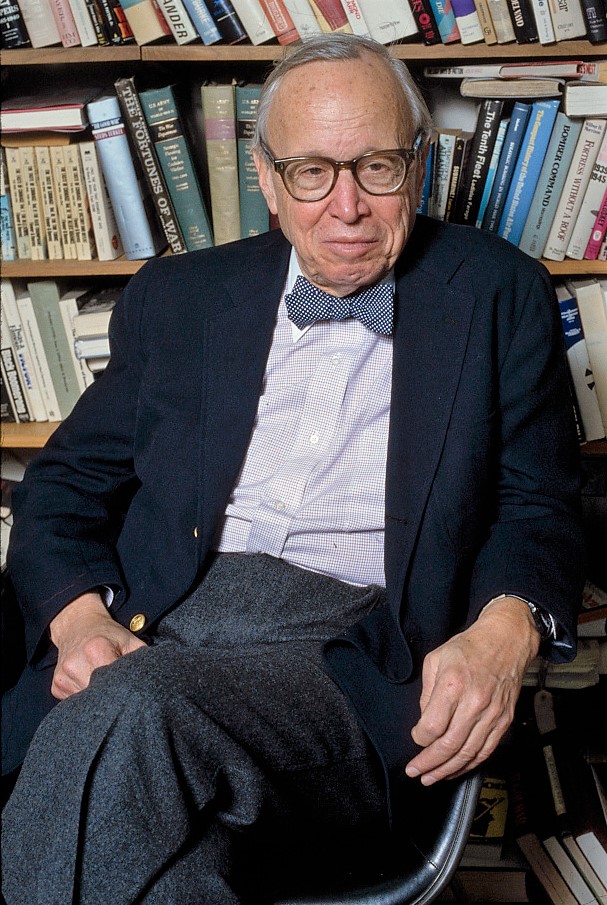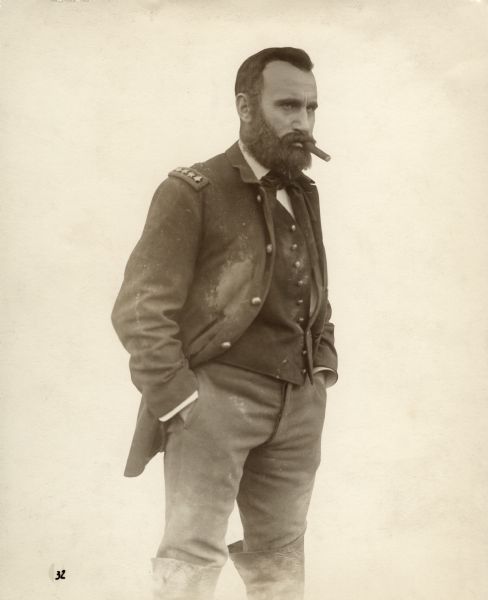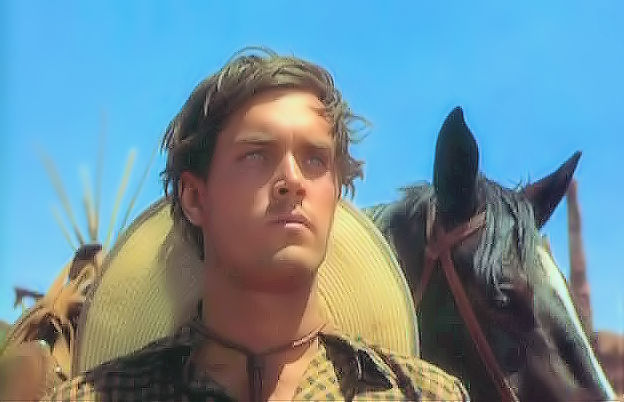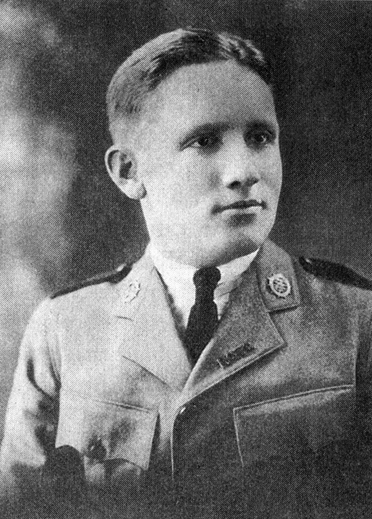|
Edwin O'Connor
Edwin Greene O'Connor (July 29, 1918 – March 23, 1968) was an American journalist, novelist, and radio commentator. He won the Pulitzer Prize for Fiction in 1962 for his novel '' The Edge of Sadness'' (1961). His ancestry was Irish, and his novels concerned the Irish-American experience and often dealt with the lives of politicians and priests. (24 March 1968)Prize Winning Author Edwin O'Connor Dies ''Oxnard Press-Courier'' (Associated Press story) Early life O'Connor was born to a medical doctor in Providence, Rhode Island, but was raised in Woonsocket, Rhode Island. He was an alumnus of La Salle Academy and the University of Notre Dame. After graduation, he served in the United States Coast Guard during World War II. In 1946 he began working as a freelance author, selling his stories and reports to numerous magazines, including ''Atlantic Monthly''. Writing career During the 1950s O'Connor began a career as a television critic for two Boston newspapers, a profession he wo ... [...More Info...] [...Related Items...] OR: [Wikipedia] [Google] [Baidu] |
:Template:Infobox Writer/doc
Infobox writer may be used to summarize information about a person who is a writer/author (includes screenwriters). If the writer-specific fields here are not needed, consider using the more general ; other infoboxes there can be found in :People and person infobox templates. This template may also be used as a module (or sub-template) of ; see WikiProject Infoboxes/embed for guidance on such usage. Syntax The infobox may be added by pasting the template as shown below into an article. All fields are optional. Any unused parameter names can be left blank or omitted. Parameters Please remove any parameters from an article's infobox that are unlikely to be used. All parameters are optional. Unless otherwise specified, if a parameter has multiple values, they should be comma-separated using the template: : which produces: : , language= If any of the individual values contain commas already, add to use semi-colons as separators: : which produces: : , ps ... [...More Info...] [...Related Items...] OR: [Wikipedia] [Google] [Baidu] |
Television Critic
Television criticism is the act of writing or speaking about television programming to evaluate its worth, meaning, and other aspects. Such criticism can be found in daily newspapers, on culture discussion shows (on TV and radio), and in specialist books and periodicals, all of which are in direct competition for audiences from television. There are many aspects to critiquing something, and those critiques can be found in a variety of places, such as newspapers or journals. While originally developed to critique content for children, it has been used to critique how various issues and topics are presented on television such as feminist and African American representation. Relations with the audience and networks are important to critics, but problems can arise with both. Overview Television criticism originally began as a way to analyze the shows children were watching, and to make sure they were getting quality educational content. Originally being defined as ''visual literacy'', ... [...More Info...] [...Related Items...] OR: [Wikipedia] [Google] [Baidu] |
Arthur Schlesinger, Jr
Arthur Meier Schlesinger Jr. (; born Arthur Bancroft Schlesinger; October 15, 1917 – February 28, 2007) was an American historian, social critic, and public intellectual. The son of the influential historian Arthur M. Schlesinger Sr. and a specialist in American history, much of Schlesinger's work explored the history of 20th-century American liberalism. In particular, his work focused on leaders such as Harry S. Truman, Franklin D. Roosevelt, John F. Kennedy, and Robert F. Kennedy. In the 1952 and 1956 presidential campaigns, he was a primary speechwriter and adviser to the Democratic presidential nominee, Adlai Stevenson II. Schlesinger served as special assistant and "court historian" to President Kennedy from 1961 to 1963. He wrote a detailed account of the Kennedy administration, from the 1960 presidential campaign to the president's state funeral, titled '' A Thousand Days: John F. Kennedy in the White House'', which won the 1966 Pulitzer Prize for Biography or Autobiogra ... [...More Info...] [...Related Items...] OR: [Wikipedia] [Google] [Baidu] |
Cerebral Hemorrhage
Intracerebral hemorrhage (ICH), also known as cerebral bleed, intraparenchymal bleed, and hemorrhagic stroke, or haemorrhagic stroke, is a sudden bleeding into the tissues of the brain, into its ventricles, or into both. It is one kind of bleeding within the skull and one kind of stroke. Symptoms can include headache, one-sided weakness, vomiting, seizures, decreased level of consciousness, and neck stiffness. Often, symptoms get worse over time. Fever is also common. Causes include brain trauma, aneurysms, arteriovenous malformations, and brain tumors. The biggest risk factors for spontaneous bleeding are high blood pressure and amyloidosis. Other risk factors include alcoholism, low cholesterol, blood thinners, and cocaine use. Diagnosis is typically by CT scan. Other conditions that may present similarly include ischemic stroke. Treatment should typically be carried out in an intensive care unit. Guidelines recommend decreasing the blood pressure to a systolic of 1 ... [...More Info...] [...Related Items...] OR: [Wikipedia] [Google] [Baidu] |
Howie Carr
Howard Louis Carr Jr. (born January 17, 1952) is an American conservative radio talk-show host, political author, news reporter and award-winning writer. He hosts ''The Howie Carr Show'' originating from his studios in Wellesley, MA and broadcast on weekdays on WRKO in Boston as well as to an audience based in New England, in addition to writing three columns a week for the ''Boston Herald''. Career Journalism Carr began his career as a reporter for the ''Winston-Salem Journal'', before returning to New England in 1979 as assistant city editor for the ''Boston Herald American'' (now the ''Boston Herald''). From 1980 to 1981, he was the Boston City Hall bureau chief of the ''Herald American'', and he later worked as the paper's State House bureau chief. As a political reporter for WNEV (now WHDH) in 1982, his coverage of then-mayor Kevin White was so relentless that after the mayor announced he was not running again, he told ''The Boston Globe'' that one of the things he enj ... [...More Info...] [...Related Items...] OR: [Wikipedia] [Google] [Baidu] |
Little, Brown
Little, Brown and Company is an American publishing company founded in 1837 by Charles Coffin Little and James Brown in Boston. For close to two centuries it has published fiction and nonfiction by American authors. Early lists featured Emily Dickinson's poetry and ''Bartlett's Familiar Quotations''. Since 2006 Little, Brown and Company is a division of the Hachette Book Group. 19th century Little, Brown and Company had its roots in the book selling trade. It was founded in 1837 in Boston by Charles Little and James Brown. They formed the partnership "for the purpose of Publishing, Importing, and Selling Books". It can trace its roots before that to 1784 to a bookshop owned by Ebenezer Battelle on Marlborough Street. They published works of Benjamin Franklin and George Washington and they were specialized in legal publishing and importing titles. For many years, it was the most extensive law publisher in the United States, and also the largest importer of standard English law an ... [...More Info...] [...Related Items...] OR: [Wikipedia] [Google] [Baidu] |
Donald Crisp
Donald William Crisp (27 July 188225 May 1974) was an English film actor as well as an early producer, director and screenwriter. His career lasted from the early silent film era into the 1960s. He won an Academy Award for Best Supporting Actor in 1942 for his performance in ''How Green Was My Valley''. Early life Donald Crisp was born George William Crisp in Bow, London, in a family home on 27 July 1882. He was the youngest of ten children (four boys and six girls) born to Elizabeth (née Christy) and James Crisp, a labourer. He was educated locally and in 1901 was living with his parents and working as a driver of a horse-drawn vehicle. Crisp made a number of claims about his early life that were eventually proven false decades after his death. He claimed that he was born in 1880 in Aberfeldy in Perthshire, Scotland, and even went so far as to maintain a Scottish accent throughout his life in Hollywood. In fact, he had no connections to Scotland, but in 1996, a plaque comm ... [...More Info...] [...Related Items...] OR: [Wikipedia] [Google] [Baidu] |
Jeffrey Hunter
Jeffrey Hunter (born Henry Herman McKinnies Jr.; November 25, 1926 – May 27, 1969) was an American film and television actor and producer known for his roles in films such as ''The Searchers'' and ''King of Kings (1961 film), King of Kings''. On television, Hunter is known for his 1965 role as Captain Christopher Pike (Star Trek), Christopher Pike in the original Television Pilot, pilot episode of ''Star Trek'' and the later use of that footage in the episode "The Menagerie (Star Trek: The Original Series), The Menagerie". Early life Hunter was born in New Orleans, Louisiana, the son of Edith Lois (née Burgess) and Henry Herman McKinnies. His family was of Scottish people, Scottish ancestry. After 1930, he was reared in Milwaukee, Wisconsin, where he graduated from Whitefish Bay High School. He was very involved in school sports, and began acting in local theater and radio in his early teens. He worked for station WTMJ-FM and the Children's Theatre of the Air, sponsored ... [...More Info...] [...Related Items...] OR: [Wikipedia] [Google] [Baidu] |
Spencer Tracy
Spencer Bonaventure Tracy (April 5, 1900 – June 10, 1967) was an American actor. He was known for his natural performing style and versatility. One of the major stars of Hollywood's Golden Age, Tracy was the first actor to win two consecutive Academy Awards for Best Actor from nine nominations. During his career, he appeared in 75 films and developed a reputation among his peers as one of the screen's greatest actors. In 1999, the American Film Institute ranked Tracy as the 9th greatest male star of Classic Hollywood Cinema. Tracy first discovered his talent for acting while attending Ripon College, and he later received a scholarship for the American Academy of Dramatic Arts. He spent seven years in the theatre, working in a succession of stock companies and intermittently on Broadway. His breakthrough came in 1930, when his lead performance in ''The Last Mile'' caught the attention of Hollywood. After a successful film debut in John Ford's ''Up the River'' (in ... [...More Info...] [...Related Items...] OR: [Wikipedia] [Google] [Baidu] |
Frank Nugent
Frank Stanley Nugent (May 27, 1908 – December 29, 1965) was an American screenwriter, journalist, and film reviewer, who wrote 21 film scripts, 11 for director John Ford. He wrote almost a thousand reviews for ''The New York Times'' before leaving journalism for Hollywood. He was nominated for an Academy Award in 1953 and twice won the Writers Guild of America Award for Best Written American Comedy. The Writers Guild of America, West ranks his screenplay for ''The Searchers'' (1956) among the top 101 screenplays of all time. Early life and film criticism Nugent was born in New York City on May 27, 1908, the son of Frank H. and Rebecca Roggenburg Nugent. He graduated from Regis High School in 1925 and studied journalism at Columbia University, graduating in 1929, where he worked on the student newspaper, the ''Columbia Spectator''. He started his journalism career as a news reporter with ''The New York Times'' in 1929 and in 1934 moved to reviewing films for that newspaper. A ... [...More Info...] [...Related Items...] OR: [Wikipedia] [Google] [Baidu] |
John Ford
John Martin Feeney (February 1, 1894 – August 31, 1973), known professionally as John Ford, was an American film director and naval officer. He is widely regarded as one of the most important and influential filmmakers of his generation. He was the recipient of six Academy Awards including a record four wins for Best Director. Ford made frequent use of location shooting and wide shots, in which his characters were framed against a vast, harsh, and rugged natural terrain. In a career of more than 50 years, Ford directed more than 140 films (although most of his silent films are now lost). He is renowned both for Westerns such as '' Stagecoach'' (1939), '' The Searchers'' (1956), and ''The Man Who Shot Liberty Valance'' (1962) and adaptations of classic 20th century American novels such as '' The Grapes of Wrath'' (1940). Ford's work was held in high regard by his colleagues, with Akira Kurosawa, Orson Welles and Ingmar Bergman among those who named him one of the greate ... [...More Info...] [...Related Items...] OR: [Wikipedia] [Google] [Baidu] |
The Last Hurrah (1958 Film)
''The Last Hurrah'' is a 1958 American political satire film adaptation of the 1956 novel ''The Last Hurrah'' by Edwin O'Connor. It was directed by John Ford and stars Spencer Tracy as a veteran mayor preparing for yet another election campaign. Tracy was nominated as Best Foreign Actor by BAFTA and won the Best Actor Award from the National Board of Review, which also presented Ford the award for Best Director. The film tells the story of Frank Skeffington, a sentimental but iron-fisted Irish-American who is the powerful mayor of an unnamed New England city. As his nephew, Adam Caulfield, follows one last no-holds-barred mayoral campaign, Skeffington and his top strategist, John Gorman, use whatever means necessary to defeat a candidate backed by civic leaders such as banker Norman Cass and newspaper editor Amos Force, the mayor's dedicated foes. Plot The titles roll as an election campaign for a Frank Skeffington unfolds. In "a New England city", Skeffington (Spencer Tracy), ... [...More Info...] [...Related Items...] OR: [Wikipedia] [Google] [Baidu] |






